
Karakol: A Gem at the Foot of the Tien Shan Mountains
Nestled at the base of the imposing Tien Shan Mountains, Karakol is a hidden gem in Kyrgyzstan. This charming city offers a unique blend of history, culture, and natural beauty. Karakol is known for its wooden Russian architecture, including the striking Holy Trinity Cathedral and the Dungan Mosque, which reflect the city's multicultural past. For nature enthusiasts, Karakol is a gateway to some of the most stunning landscapes in Central Asia. The nearby Karakol Valley and Ala-Kul Lake provide breathtaking hiking opportunities. During the winter, the Karakol Ski Resort offers excellent skiing and snowboarding conditions, making it a year-round destination for outdoor activities. The bustling Sunday Animal Market is a must-visit for those interested in local culture. Here, you can witness the vibrant trading of livestock and experience traditional Kyrgyz life. Don't miss the chance to savor local cuisine, including the hearty laghman and delicious samsa, at one of Karakol's many cozy cafes and restaurants.
Local tips in Karakol
- Visit the Sunday Animal Market early in the morning for the best experience.
- Pack appropriate clothing for both warm days and cool nights, as the weather can be unpredictable.
- Consider hiring a local guide for hiking trips to ensure safety and to learn about the region's flora and fauna.
- Try the local dishes like laghman and samsa to get a taste of authentic Kyrgyz cuisine.
- Exchange enough money in Bishkek, as ATMs can be scarce in Karakol.
Karakol: A Gem at the Foot of the Tien Shan Mountains
Nestled at the base of the imposing Tien Shan Mountains, Karakol is a hidden gem in Kyrgyzstan. This charming city offers a unique blend of history, culture, and natural beauty. Karakol is known for its wooden Russian architecture, including the striking Holy Trinity Cathedral and the Dungan Mosque, which reflect the city's multicultural past. For nature enthusiasts, Karakol is a gateway to some of the most stunning landscapes in Central Asia. The nearby Karakol Valley and Ala-Kul Lake provide breathtaking hiking opportunities. During the winter, the Karakol Ski Resort offers excellent skiing and snowboarding conditions, making it a year-round destination for outdoor activities. The bustling Sunday Animal Market is a must-visit for those interested in local culture. Here, you can witness the vibrant trading of livestock and experience traditional Kyrgyz life. Don't miss the chance to savor local cuisine, including the hearty laghman and delicious samsa, at one of Karakol's many cozy cafes and restaurants.
When is the best time to go to Karakol?
Iconic landmarks you can’t miss
Dungan Mosque
Explore the Dungan Mosque in Karakol, a stunning blend of Chinese architecture and Islamic culture, reflecting the rich heritage of Kyrgyzstan.
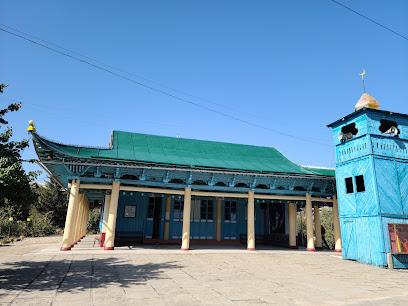
Holy Trinity Cathedral
Discover the serene beauty and spiritual significance of Holy Trinity Cathedral in Karakol, a captivating Russian Orthodox church nestled in Kyrgyzstan's stunning landscapes.
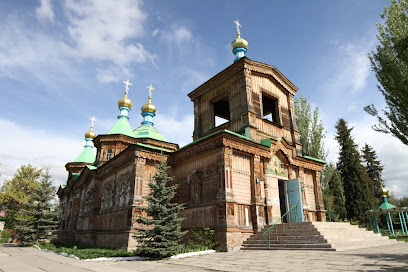
Karakol Historical Museum
Discover the captivating history and cultural heritage of Karakol at the Karakol Historical Museum, a treasure trove of artifacts and stories.
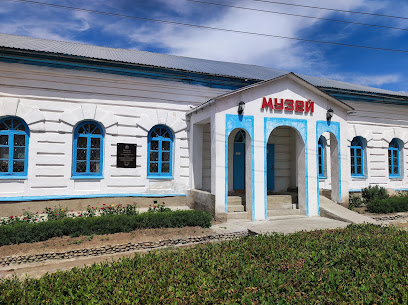
Репрессия Шейиттери Эстелиги
Discover the Репрессия Шейиттери Эстелиги in Karakol, a historical landmark honoring the past and surrounded by stunning natural beauty.
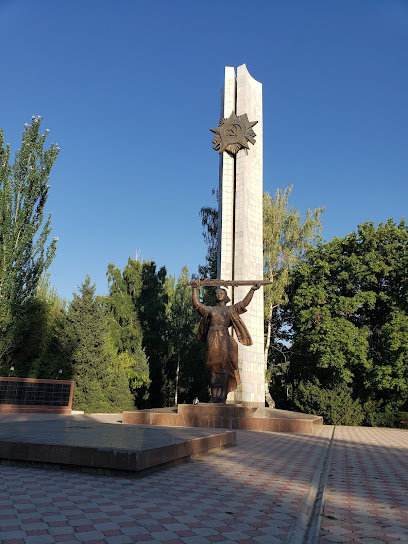
Городская Площадь им. Чынгыза Айтматова
Discover the historical heart of Karakol at Gorodskaya Ploshchad im. Chyngyza Aitmatova, a vibrant square rich in culture and tradition.
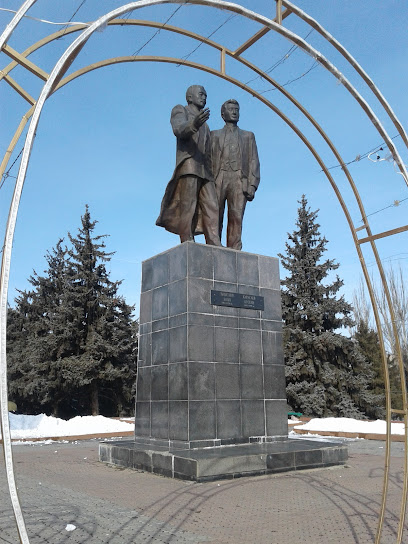
ҮРКҮН ЭСТЕЛИГИ
Explore the rich history of Kyrgyzstan at Karakol's captivating History Museum, where the past comes alive through intriguing exhibits and artifacts.
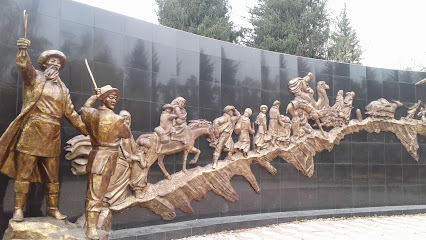
Aryk Myrza
Explore Aryk Myrza in Karakol: A stunning blend of nature, history, and adventure awaits in the heart of Kyrgyzstan.
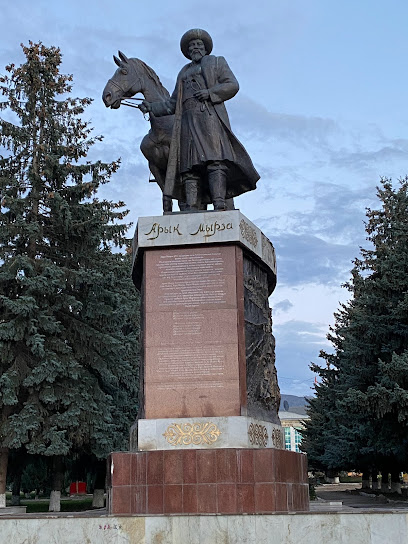
I Love Karakol Sign
Experience the heart of Kyrgyzstan at the I Love Karakol Sign, a vibrant symbol of local culture surrounded by stunning mountain landscapes.
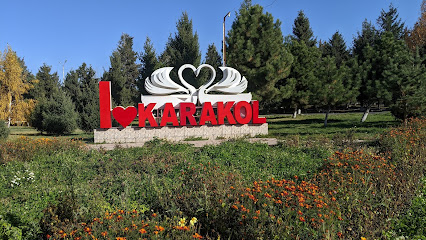
Krugovoy
Explore Krugovoy, a historical landmark in Karakol, Kyrgyzstan, where stunning architecture meets rich cultural heritage.
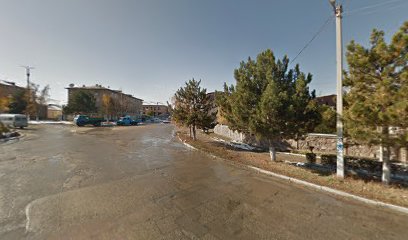
無名戰士紀念碑
Explore the Unknown Warrior Monument in Karakol, a symbol of Kyrgyz valor and a beautiful blend of history and nature.
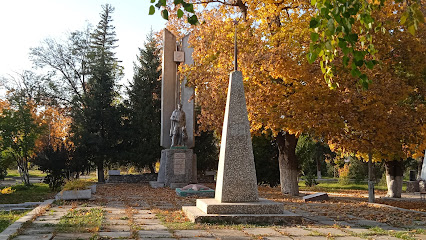
Памятник Неизвестному солдату
Discover the poignant history at the Monument to the Unknown Soldier in Karakol, where valor and sacrifice are honored amidst stunning landscapes.
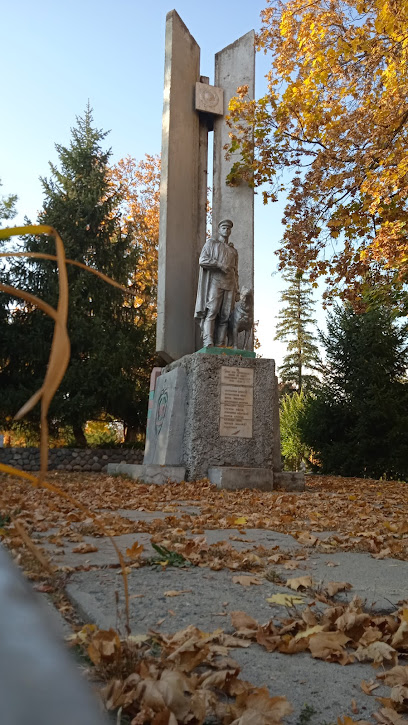
Unmissable attractions to see
Dungan Mosque
Explore the Dungan Mosque in Karakol, a stunning architectural masterpiece that blends Chinese and Islamic influences, reflecting the rich cultural heritage of the Dungan people.
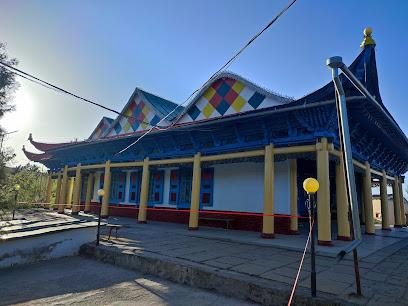
Holy Trinity Cathedral
Discover the breathtaking Holy Trinity Cathedral in Karakol, a stunning Russian Orthodox church that beautifully blends culture and spirituality amidst majestic mountain scenery.
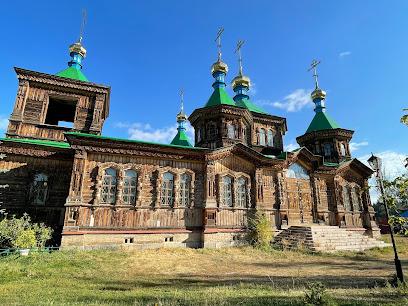
Altyn-Arashan
Experience the natural beauty and soothing hot springs of Altyn-Arashan, a stunning nature preserve in Kyrgyzstan's Tien Shan mountains.
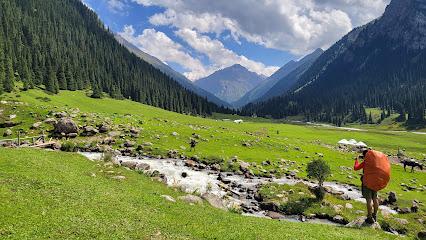
Karakol River Park
Discover the serene beauty of Karakol River Park, a tranquil escape with picturesque views and lush greenery in the heart of Kyrgyzstan.
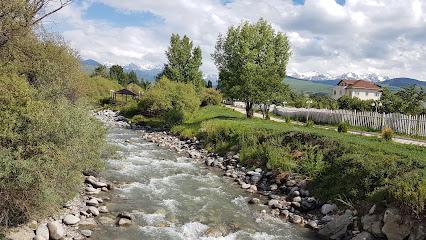
Karakol Historical Museum
Discover the cultural heritage of Kyrgyzstan at the Karakol Historical Museum, a captivating tourist attraction filled with rich history and diverse exhibits.
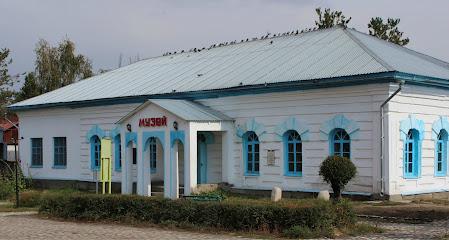
Kok Jaiyk valley
Explore Kok Jaiyk Valley: A Natural Wonderland in Dzhetyoguz, Perfect for Hiking, Photography, and Unwinding in Nature's Embrace.
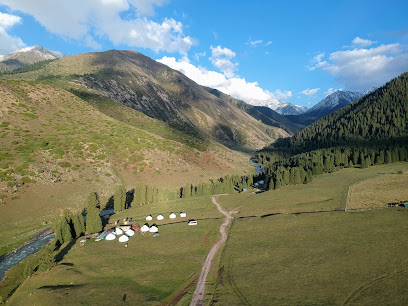
Ala-Kul Lake
Explore the breathtaking beauty of Ala-Kul Lake, nestled in Kyrgyzstan's Tian Shan mountains, a paradise for nature lovers and adventure seekers.
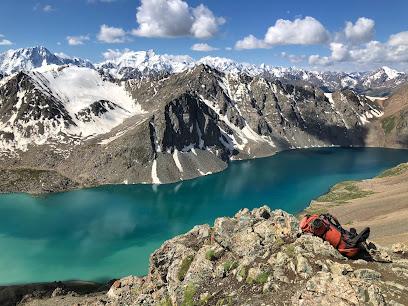
ҮРКҮН ЭСТЕЛИГИ
Discover the captivating history of Kyrgyzstan at the Yerkyn Esteligi Museum, where cultural heritage comes alive through fascinating exhibits.
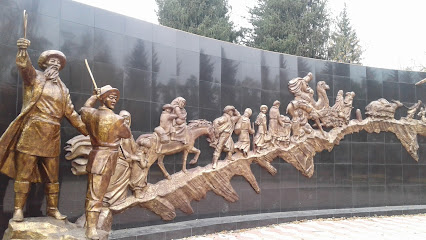
Жycyп Aбдpaхманов Статуя
Explore the Zhuyup Abdrahmanov Statue in Karakol, a remarkable tribute to local culture surrounded by breathtaking mountain views.
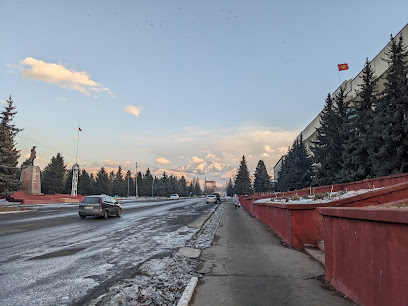
Karakol travel
Experience the breathtaking landscapes and rich cultural tapestry of Karakol, the adventure capital of Kyrgyzstan, where nature meets heritage.
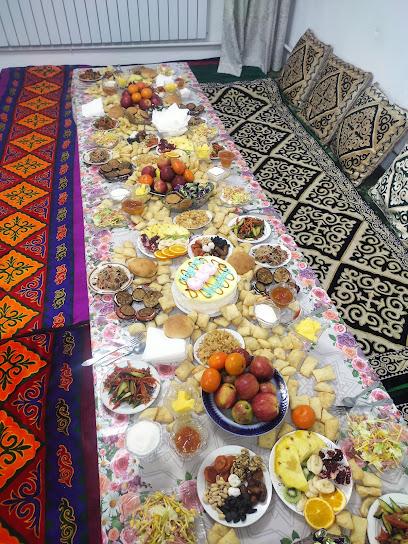
Essential places to dine
Dastorkon (Дасторкон)
Experience authentic barbecue and exceptional dining at Dastorkon in Karakol – where every meal is a celebration of flavor.
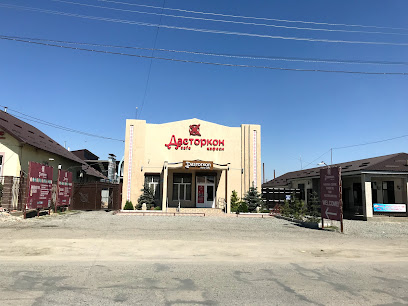
Cafe Zarina
Discover the flavors of Kyrgyzstan at Cafe Zarina in Karakol - where local charm meets culinary delight.
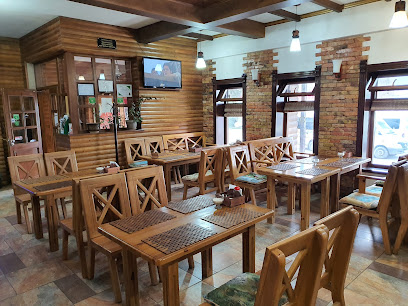
Restaurant Ala Too
Discover the flavors of Kyrgyzstan at Restaurant Ala Too in Karakol - where every dish tells a story.
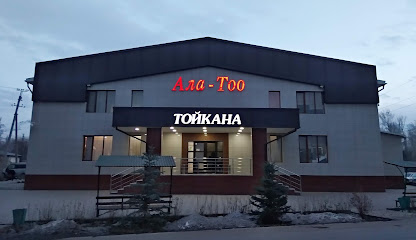
Kompleks Ruslan
Experience culinary delights and vibrant entertainment at Kompleks Ruslan in Karakol - where every visit promises fun and relaxation.
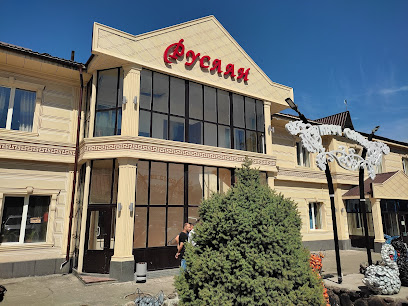
Archa (Арча) the art of food
Experience authentic Kyrgyz cuisine at Archa in Karakol—where every dish tells a story and every meal is a celebration.
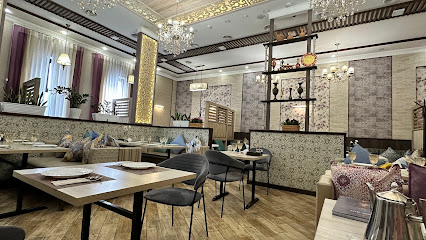
U Saidy
Experience authentic Kyrgyz cuisine at U Saidy, a family-friendly restaurant in Karakol offering delicious dishes in a warm atmosphere.
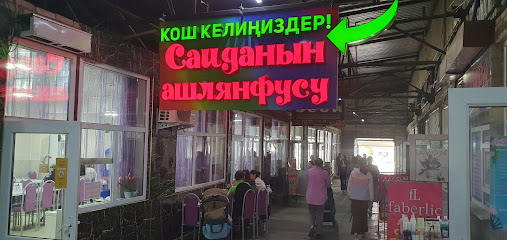
АЛТЫН КАЗЫНА
Experience authentic Kyrgyz cuisine at АЛТЫН КАЗЫНА in Karakol - where every dish tells a story.
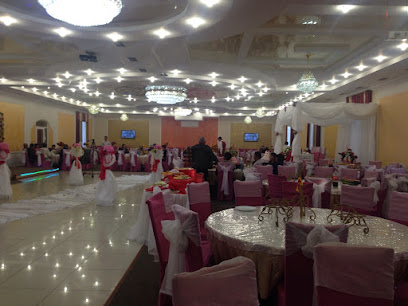
Ала-Тоо Luxe
Discover authentic Kyrgyz cuisine at Ала-Тоо Luxe in Karakol - where tradition meets contemporary dining.
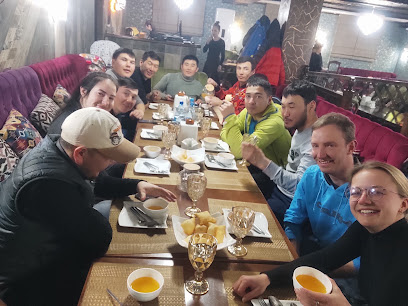
Алтын-Көл
Experience authentic Kyrgyz cuisine at Алтын-Көл in Karakol - where every meal tells a story.
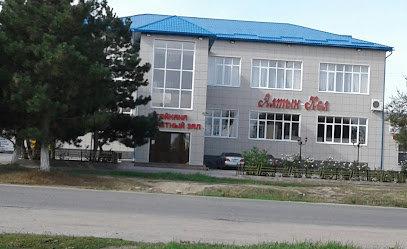
Local Karakol Food
Discover authentic Kyrgyz cuisine at Local Karakol Food—where tradition meets flavor in every dish.
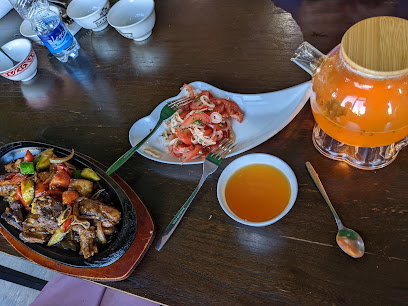
Кафе Берекет
Discover the flavors of Kyrgyzstan at Café Bereket in Karakol - where tradition meets taste in every delightful dish.
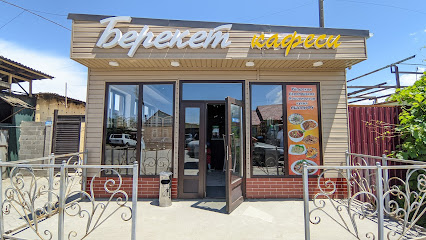
Tattuu family
Experience authentic Kyrgyz cuisine at Tattuu Family in Karakol – a must-visit culinary gem offering delightful flavors and warm hospitality.
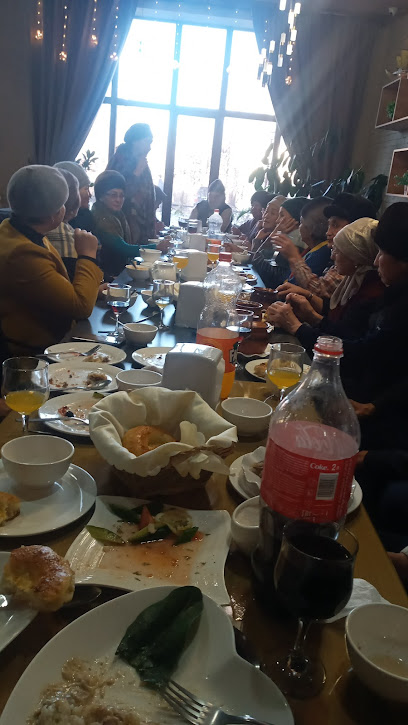
Faridanyn Ashlyanfusu
Discover authentic Kyrgyz cuisine at Faridanyn Ashlyanfusu - a culinary treasure in Karakol.
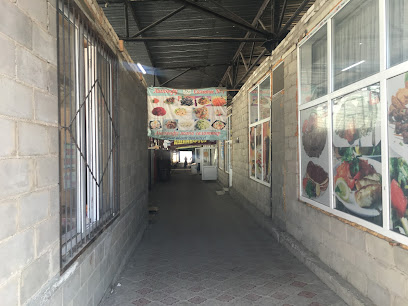
Grizzly Bar
Savor authentic grilled dishes at Grizzly Bar in Karakol—your gateway to Kyrgyzstan's rich culinary traditions.
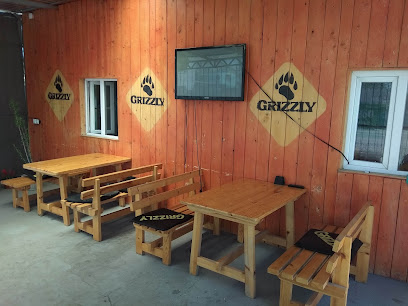
Lagman center
Experience authentic Kyrgyz cuisine at Lagman Center in Karakol—where tradition meets flavor in every bite.
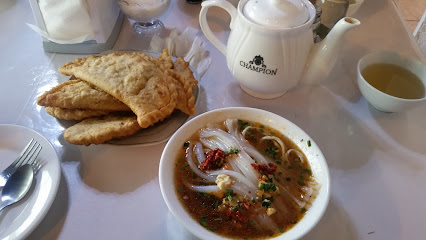
Markets, malls and hidden boutiques
ZUM
Explore the vibrant ZUM shopping mall in Karakol for unique local shops, international brands, and a lively atmosphere perfect for all shoppers.
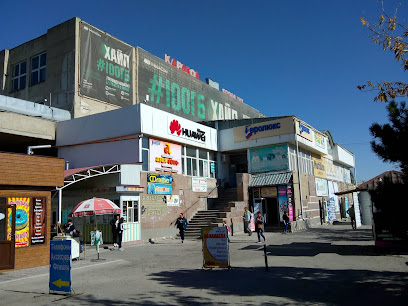
Issyk-Kul Brand Shop
Explore the Issyk-Kul Brand Shop for authentic souvenirs and local delicacies that capture the essence of Kyrgyz culture.
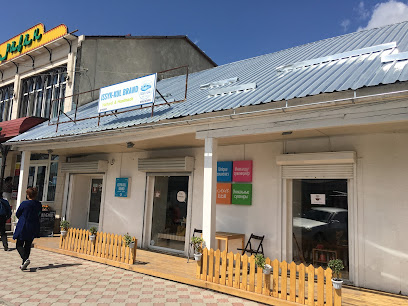
Karakol Magazin
Discover Karakol Magazin, your ultimate shopping destination in Karakol, offering a diverse range of products and a taste of local culture.
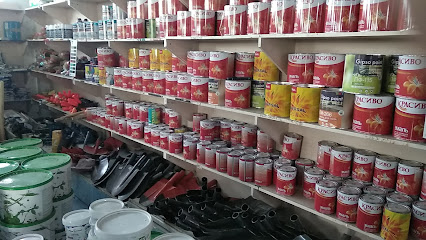
Moskova Market
Explore the vibrant Moskova Market in Karakol, where local culture meets a variety of unique products and delicious Kyrgyz snacks.
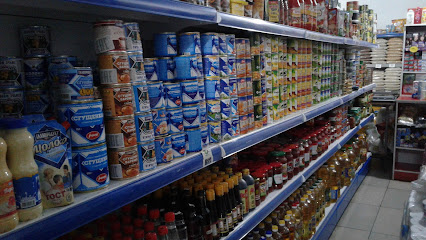
EthnoMir
Explore EthnoMir in Karakol for an unforgettable shopping experience filled with unique souvenirs reflecting Kyrgyz culture.
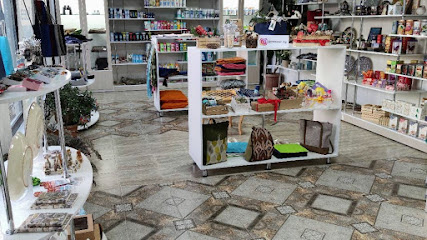
Спортивный магазин ARASHAN
ARASHAN Sports Shop in Karakol: Your Gateway to Winter Sports Adventures in Kyrgyzstan.
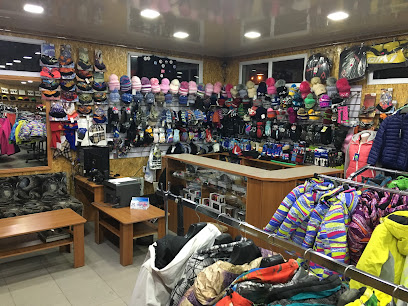
Extreme shop Gold
Explore the vibrant styles of Kyrgyzstan at Extreme Shop Gold in Karakol - a must-visit clothing store for every traveler.
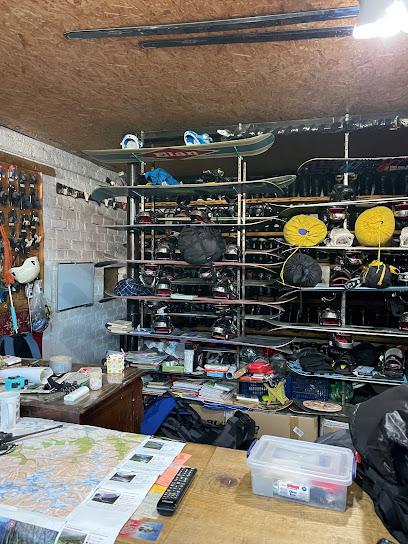
Altynkul
Explore Altynkul in Karakol for an exceptional selection of quality shoes, blending local craftsmanship with modern style for every adventure.
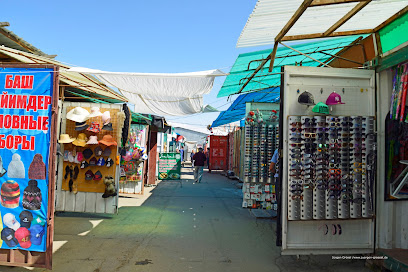
BOSS Кийим
Discover the essence of modern men's fashion at BOSS Кийим, Karakol's premier clothing destination for stylish travelers.
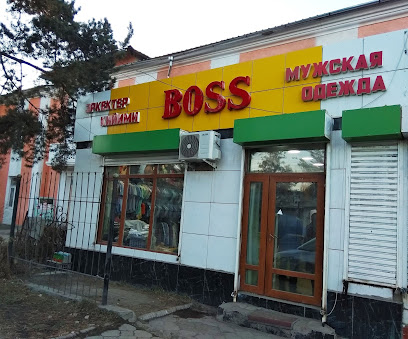
Bishkek Market
Discover Bishkek Market: A vibrant hub of home goods and local craftsmanship in the heart of Karakol, Kyrgyzstan.
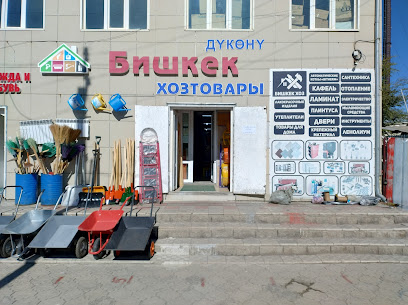
Arzan Market
Discover the vibrant Arzan Market in Karakol, where local culture meets unique craftsmanship and culinary delights.
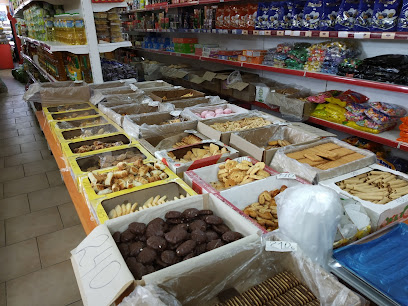
Kapous Karakol
Discover Kapous Karakol, your go-to cosmetics and medical supply store in Karakol, Kyrgyzstan, for all your beauty needs while traveling.
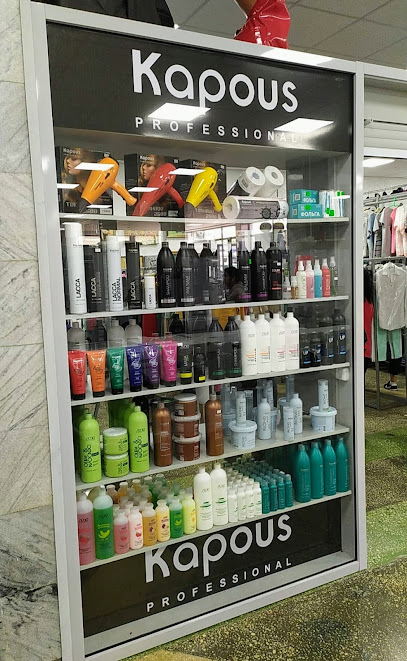
Arzan Shop
Explore the vibrant fashion scene at Arzan Shop in Karakol, where local craftsmanship meets contemporary style for a unique shopping experience.
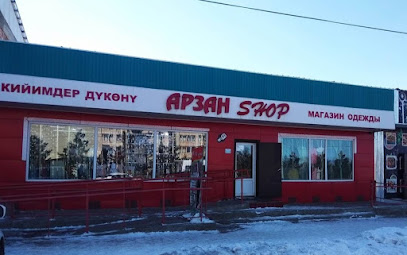
Priyatnyye Melochi Karakol
Explore the charm of Priyatnyye Melochi Karakol, a unique home goods store filled with novelty items, toys, and orthopedic supplies for all ages.
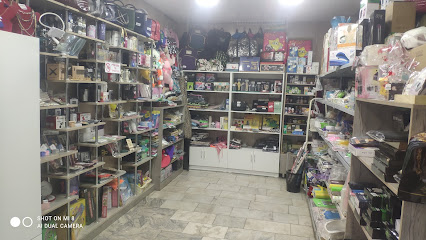
Toy Той
Explore Toy Той in Karakol for a unique selection of local clothing that blends tradition with contemporary fashion perfect for every traveler.
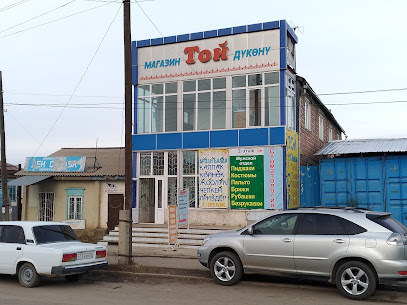
Essential bars & hidden hideouts
Dastorkon (Дасторкон)
Experience the vibrant flavors of Kyrgyz cuisine at Dastorkon, a top-rated restaurant in Karakol, known for its exquisite barbecue and warm ambiance.
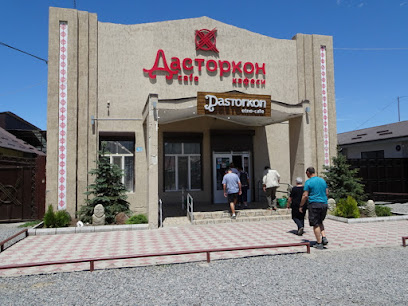
Cafe Zarina
Discover the flavors of Kyrgyzstan at Cafe Zarina, a cozy restaurant in Karakol offering a delightful mix of local and international cuisine.
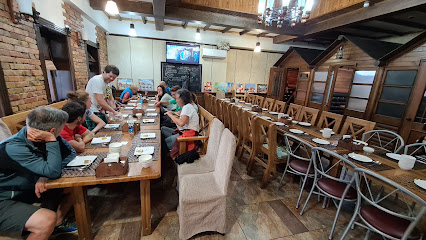
Kompleks Ruslan
Explore Kompleks Ruslan, a culinary gem in Karakol, offering sushi, local dishes, and a vibrant atmosphere for relaxation and entertainment.
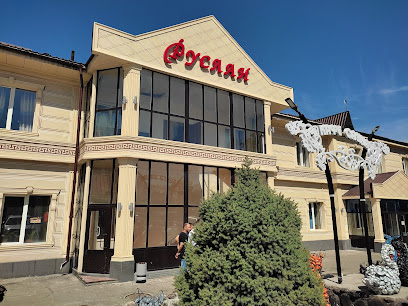
Karakol Lighthouse
Discover the delightful flavors and scenic views at Karakol Lighthouse, a perfect coffee shop and cafe in the heart of Karakol.
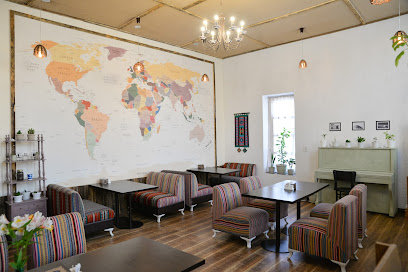
SIERRA Coffee Karakol
Discover the unique blend of local flavors and exceptional coffee at SIERRA Coffee in Karakol, your perfect retreat after a day of adventure.
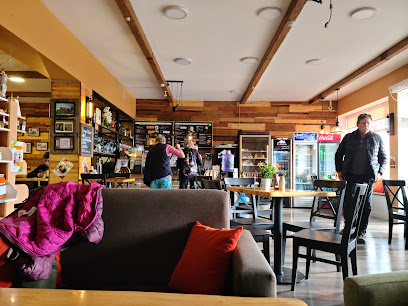
Kafe Saymaluu
Discover the heart of Kyrgyz cuisine at Kafe Saymaluu in Karakol, where every meal is a delightful experience of local flavors.
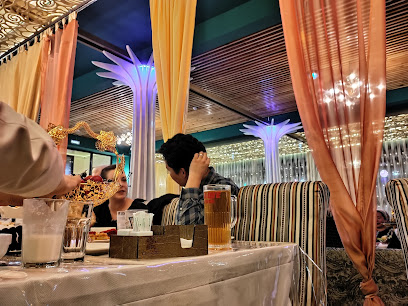
Ала-Тоо Luxe
Discover authentic Kyrgyz cuisine at Ala-Too Luxe in Karakol, a cozy restaurant offering delightful dishes and warm hospitality.
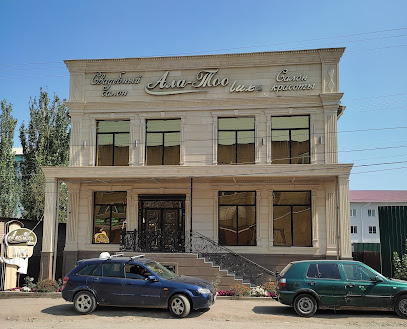
Arzym
Experience the vibrant nightlife of Karakol at Arzym, a cozy bar offering a delightful range of drinks and a friendly atmosphere.
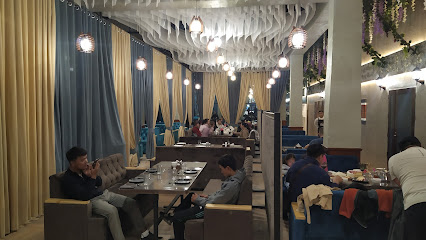
Кафе Берекет
Experience authentic Kyrgyz cuisine at Café Bereket in Karakol, where every dish is a tribute to the rich culinary heritage of the region.
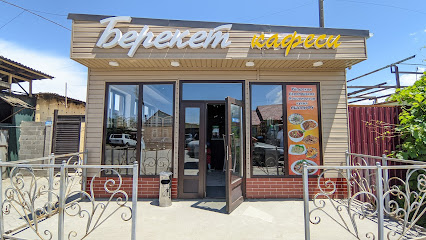
Local Karakol Food
Discover the authentic taste of Kyrgyz cuisine at Local Karakol Food, a delightful restaurant in the heart of Karakol offering unforgettable flavors.
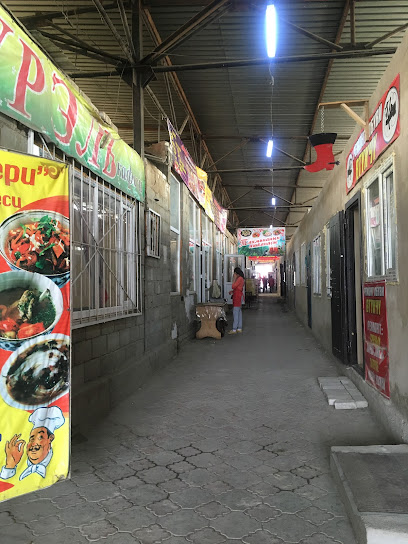
Duet coffee shop
Experience the cozy charm of Duet Coffee Shop in Karakol, where great food meets a warm atmosphere for every traveler.
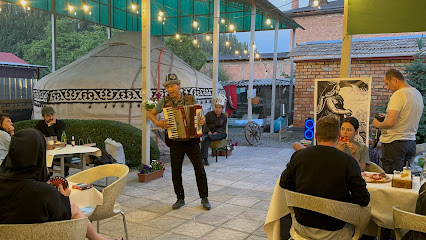
Chalet Dj Bar
Discover the lively nightlife of Karakol at Chalet Dj Bar, where cocktails meet culture in a vibrant setting that promises unforgettable moments.
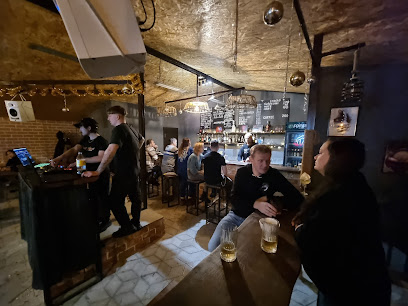
Grizzly Bar
Experience the best of Karakol's grill cuisine at Grizzly Bar, where delicious flavors meet warm hospitality in a cozy setting.
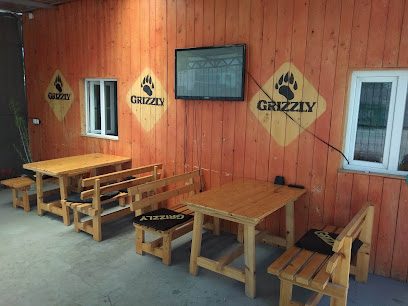
Zolotaya Bochka
Experience the charm of Zolotaya Bochka, a cozy bar in Karakol, offering a delightful selection of drinks and a vibrant atmosphere for relaxation.
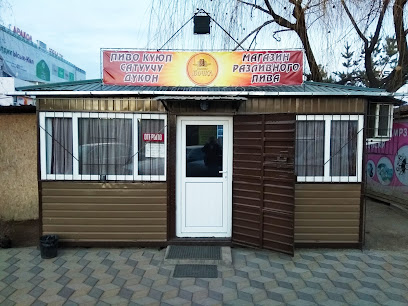
Local Phrases
-
- HelloСалам
[salam] - GoodbyeЖакшы калыңыз
[jakhshi kalynyz] - YesОоба
[ooba] - NoЖок
[jok] - Please/You're welcomeАрзуу этип, рахмат
[arzuu etip, rakhmat] - Thank youРахмат
[rakhmat] - Excuse me/SorryКечиресиз
[kechiresiz] - How are you?Кандайсыз?
[kandaisyz?] - Fine. And you?Жакшым. Сиз кандайсыз?
[jakhshym. siz kandaisyz?] - Do you speak English?Сиз англисче сөйлешетиңизби?
[siz anglische soyleshetinizbi?] - I don't understandМен түшүнбөйм
[men tushunboym]
- HelloСалам
-
- I'd like to see the menu, pleaseМениюны көрүүм келет
[meniyuny koruum kelet] - I don't eat meatМен жігер тамакты көрбөйм
[men jiger tamakty korboym] - Cheers!Болсоңуз
[bolsonguz] - I would like to pay, pleaseТөлөмүм келет
[tolomum kelet]
- I'd like to see the menu, pleaseМениюны көрүүм келет
-
- Help!Жардам!
[jardam!] - Go away!Айылуу!
[aiyluu!] - Call the Police!Полицияга чакырыңыз!
[politsiyaga chakyriniz!] - Call a doctor!Докторго чакырыңыз!
[doktorgo chakyriniz!] - I'm lostМен таппайм
[men tappaym] - I'm illМен касалмын
[men kasalmyn]
- Help!Жардам!
-
- I'd like to buy...Сатып алуу келет...
[satyp aluu kelet...] - I'm just lookingМен тек сүрөм
[men tek suroom] - How much is it?Буна качан?
[buna kachan?] - That's too expensiveБуна өте ыңгай
[buna ote ыngay] - Can you lower the price?Буна үчүн камсызатабылар?
[buna uchun kamsyzatabylar?]
- I'd like to buy...Сатып алуу келет...
-
- What time is it?Саат качанды?
[saat kachandy?] - It's one o'clockБир саат
[bir saat] - Half past (10)Ондон аралыгы
[ondon aralygy] - MorningТүн
[tyn] - AfternoonКүн батышы
[kyn batyshy] - EveningКеч
[kech] - YesterdayКече
[keche] - TodayБүгүн
[bugun] - TomorrowЭртең
[erteŋ] - 1Бир
[bir] - 2Эки
[eki] - 3Үч
[üch] - 4Төрт
[tört] - 5Беш
[besh] - 6Алты
[altı] - 7Жети
[jeti] - 8Сегиз
[segiz] - 9Тогуз
[toguz] - 10Он
[on]
- What time is it?Саат качанды?
-
- Where's a/the...?... қайда?
[... qayda?] - What's the address?Мекен-жай кандай?
[meken-jay kanday?] - Can you show me (on the map)?Менен көрсөтүүңүз болот? (картада)
[menen körsötüüngüz bolot? (kartada)] - When's the next (bus)?Кийинки (аутобус) качан?
[kiyinki (aytobus) kachan?] - A ticket (to ....)Билет (....га)
[bilet (....ga)]
- Where's a/the...?... қайда?
History of Karakol
-
Karakol was founded in 1869 as a Russian military outpost to protect and advance Russian interests in the Central Asian region. The town was strategically located near the Chinese border, serving as a base for Russian expeditions and a center for trade and commerce.
-
During the late 19th century, Karakol played a significant role in the Great Game, the geopolitical struggle between the British Empire and the Russian Empire for control over Central Asia. The town served as a launching point for numerous Russian expeditions into the heart of Central Asia, including the famous expeditions led by Nikolay Przhevalsky.
-
Nikolay Przhevalsky, a Russian explorer, made Karakol his base for several of his expeditions into Central Asia. He passed away in Karakol in 1888, and a memorial museum was established in his honor. The town was briefly renamed Przhevalsk in his memory, reflecting his significant impact on the region.
-
Under Soviet rule, Karakol underwent substantial changes. The town became an administrative center for the Issyk-Kul Region, and significant investments were made in infrastructure, education, and industry. Soviet policies also brought about social and cultural changes, influencing the local way of life.
-
Karakol is known for its ethnic and cultural diversity. The town is home to Kyrgyz, Russian, Dungan (Chinese Muslims), Uighur, and other ethnic groups. This diversity is reflected in Karakol's architecture, cuisine, and cultural practices, making it a unique melting pot in Kyrgyzstan.
-
Karakol is home to several significant religious sites, including the Dungan Mosque, built in 1910 by Chinese artisans without using a single nail, and the Holy Trinity Orthodox Cathedral, constructed in 1895. These sites reflect the town's religious and cultural diversity.
-
Since Kyrgyzstan's independence in 1991, Karakol has continued to evolve. The town has become a popular destination for tourists, particularly those interested in trekking and adventure tourism in the nearby Terskey Alatau mountains and Issyk-Kul Lake. Efforts have been made to preserve Karakol's historical and cultural heritage while promoting sustainable development.
Karakol Essentials
-
Karakol is located in the Issyk-Kul Region of Kyrgyzstan. The nearest international airports are Manas International Airport in Bishkek and Almaty International Airport in Kazakhstan. From Bishkek, you can take a direct bus or shared taxi to Karakol, which typically takes around 6-8 hours. Alternatively, you can fly to Tamchy Airport near Cholpon-Ata and then take a taxi or bus to Karakol, which is approximately a 2-3 hour drive.
-
Karakol is a small city, and many of its attractions are within walking distance. For longer trips, local taxis are readily available and inexpensive. Public minibuses (marshrutkas) operate within the city and connect to nearby villages. Bicycle rentals are also an option for those looking to explore the area at a leisurely pace. For more remote destinations, consider hiring a local guide with a vehicle.
-
The official currency in Kyrgyzstan is the Kyrgyzstani Som (KGS). Credit cards are accepted in some hotels, restaurants, and shops, but it is advisable to carry cash, especially in smaller establishments and rural areas. ATMs are available in Karakol, but it's wise to withdraw sufficient cash before traveling to ensure you have enough funds for your trip.
-
Karakol is generally a safe destination for tourists. However, like any travel destination, it is advisable to take standard precautions. Avoid walking alone at night in unfamiliar areas and keep an eye on your belongings in crowded places. There are no specific high-crime areas targeting tourists, but it is always best to stay vigilant and aware of your surroundings.
-
In case of emergency, dial 102 for police assistance, 103 for medical emergencies, and 101 for fire emergencies. The local police station and medical facilities are available in Karakol. It is recommended to have travel insurance that covers medical emergencies. For minor health issues, there are pharmacies in the city where you can purchase over-the-counter medications.
-
Fashion: Do dress modestly, especially when visiting religious sites. Avoid wearing revealing clothing. Religion: Do respect local customs and traditions. Always remove your shoes when entering a mosque. Public Transport: Do be respectful and give up your seat to elderly passengers. Don't eat or drink on public transport. Greetings: Do greet people with a handshake. A slight bow of the head is also a sign of respect. Eating & Drinking: Do try local delicacies and accept food offerings graciously. Don't refuse hospitality, as it is considered impolite.
-
To experience Karakol like a local, visit the local markets such as the bustling Sunday animal market where you can observe traditional Kyrgyz trading practices. Engage with locals, as they are often friendly and willing to share stories about the city's history and culture. Don't miss visiting the Dungan Mosque and the Russian Orthodox Holy Trinity Cathedral. For a unique experience, try the local dish Ashlyan-Fu, a cold noodle soup, at one of the local eateries. Additionally, consider staying in a yurt to get a taste of traditional nomadic life.
Nearby Cities to Karakol
-
Things To Do in Cholpon-Ata
-
Things To Do in Kochkor
-
Things To Do in Kemin
-
Things To Do in Tokmok
-
Things To Do in Bishkek
-
Things To Do in Kyzyl-Oi
-
Things To Do in Jalal-Abad
-
Things To Do in Osh
-
Things To Do in Andijan
-
Things To Do in Namangan
-
Things To Do in Angren
-
Things To Do in Shymkent
-
Things To Do in Chirchiq
-
Things To Do in Tashkent
-
Things To Do in Khujand









